Become An Athlete
Special Olympics West Virginia (SOWV) offers year-round sports training and competitions in 18 Olympic-type sports to children and adults with intellectual disabilities.
Individuals eight years old and up can train and compete in any of the 18 sports, and Young Athletes is available for children ages 2-7.
HOW TO GET INVOLVED

Children and adults must be identified by a medical agency or professional as having an intellectual disability to be eligible to participate in Special Olympics.
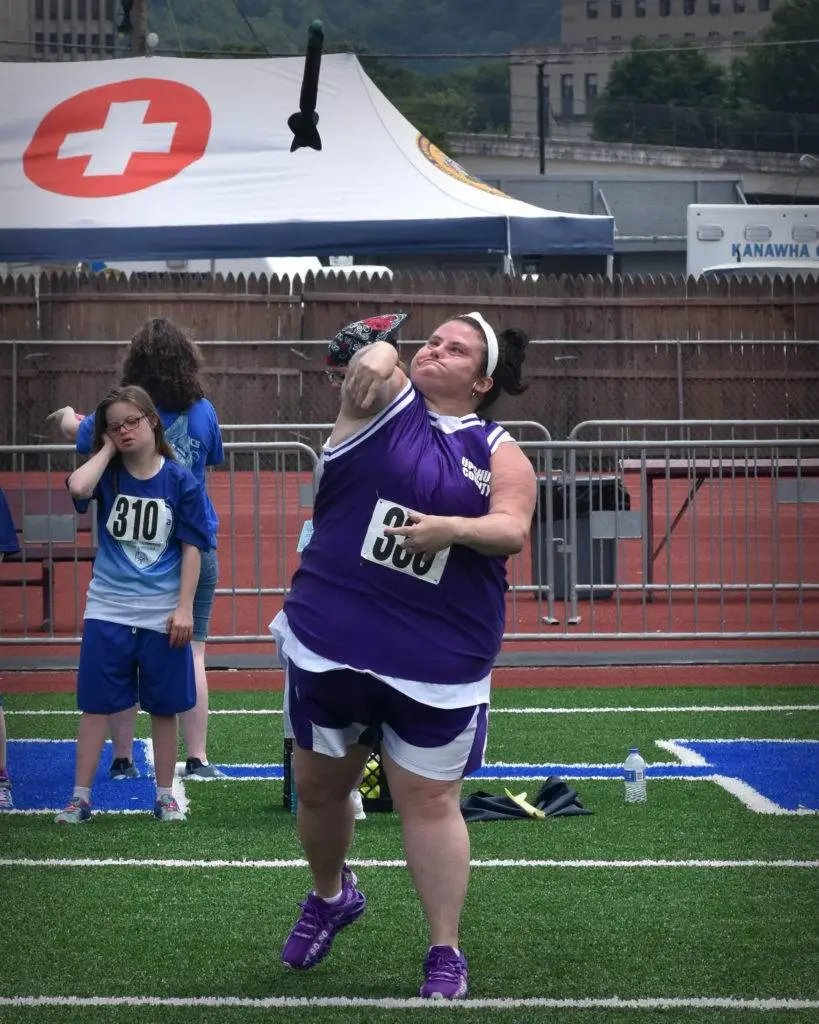
Participation in Special Olympics requires athletes to obtain a physical from a medical professional and fill out the Athlete Participation Packet every 3 years.

Find a Special Olympics WV county program near you and contact your County Director to start training!
Athlete Resources
Children and adults must be identified by a medical agency or professional as having an intellectual disability to be eligible to participate in Special Olympics. Athletes can begin competing at the age of 8. For children age 2-7, we offer the Young Athletes Program.
There is no aging out of Special Olympics. Athletes are welcome to participate as long as they would like and are able.
Eligibility to participate:
Every person with an intellectual disability who is at least eight years of age is eligible to participate in Special Olympics. A person is considered to have an intellectual disability for purposes of determining his or her eligibility to participate in Special Olympics if that person satisfies any one of the following requirements:
(1) The person has been identified by an agency or professional as having an intellectual disability as determined by their localities; or
(2) The person has a cognitive delay, as determined by standardized measures such as intelligent quotient or “IQ” testing or other measures which are generally accepted within the professional community in that Accredited Program’s nation as being a reliable measurement of the existence of a cognitive delay; or
(3) The person has a closely related developmental disability. A “closely related developmental disability” means having functional limitations in both general learning (such as IQ) and in adaptive skills (such as in recreation, work, independent living, self-direction, or self-care).
However, persons whose functional limitations are based solely on a physical, behavioral, or emotional disability, or a specific learning or sensory disability, are not eligible to participate as Special Olympics athletes, but may be eligible to volunteer for Special Olympics.
————————–
Some athletes may also have a physical disability, but it is a developmental disability that qualifies a person to be able to participate in Special Olympics. Athletes with only a physical disability should contact other agencies to determine eligibility.
————————–
If you do not have an intellectual disability, but would like to compete beside your friend, sibling, etc. who does qualify for Special Olympics, you can be a Unified Partner through Unified Sports!
Minimum Standards
The minimum standards for athletes desiring to compete in Special Olympics are based on Special Olympics Inc. Sports Rules. Requirements concerning Special Olympics training may be found in Article 1, Section 3.05:
- All athletes must be trained in the sport before competing. Part of this training must include nutrition education and physical conditioning.
- Eight consecutive weeks of training are mandatory. For Regional or World Games, training is recommended twice a week for ten weeks.
The ability levels of Special Olympics athletes range greatly. The best thing is that no matter where an athlete falls in terms of ability, they have the opportunity to win a gold medal as they are divisioned in competitive groupings with their peers!
Athletes of all ability levels also have an opportunity to advance to the next higher-level competition provided the sport and event are offered at the next level, from sub-Program Games (i.e. county Spring and/or Fall Games) to World Games.
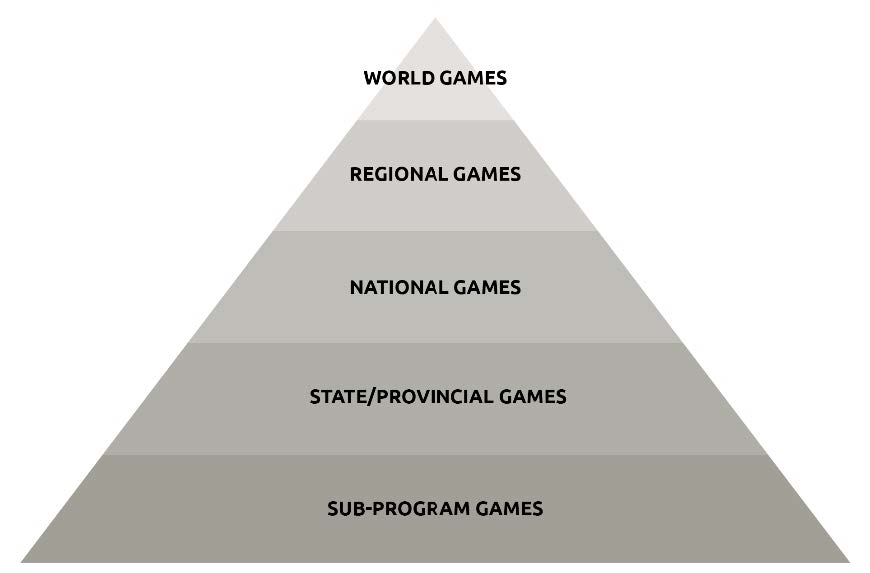
There are occasionally opportunities for athletes to compete in events outside of the state. For those events that are simply open for anyone to participate, you can work with your local director to express an interest.
For events which offer West Virginia very specific number of athletes who can compete, Special Olympics staff may establish quotas for the number of athletes and teams participating in Games. The Special Olympics West Virginia Program identifies the number of athletes or teams eligible for advancement within the sport/event based on participation in competition at the lower level.
A random selection and/or random draw of gold medal winners from the most recent state-level event may occur to begin selections for these slots. Athletes must be able to meet certain criteria for travel, self-care, and participation.
In addition to demonstrating your true abilities as a competitor, there are many other ways you can excel in Special Olympics.
Athletes can also:
- Receive training in public speaking and become a Global Messenger for Special Olympics
- Become a coach for Special Olympics
- Serve on the planning committee with your local county program.
Contact your local county program or SOWV for more information!
To participate in training and competition, all athletes age 8 and older are required to complete these forms and update them every 3 years.
SOWV Athlete Participation Packet
Young Athletes™ is an unique sport and play program for children with and without intellectual disabilities, age 2-7. The focus is on basic sports skills, hand-eye coordination, learning rules, and fun!
Young Athletes Participation Packet

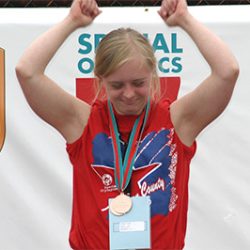
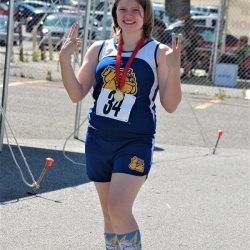
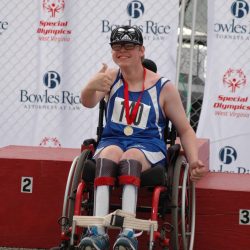
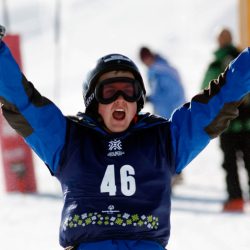
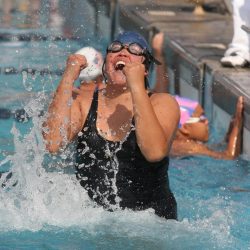
Contact Us
Special Olympics West Virginia
3055 Mount Vernon Road
Hurricane, WV 25526
304.345.9310
Hours:
8:30am – 4:30pm
Monday-Friday
Created by The Joseph P. Kennedy, Jr. Foundation for the Benefit of Persons with Intellectual Disabilities.